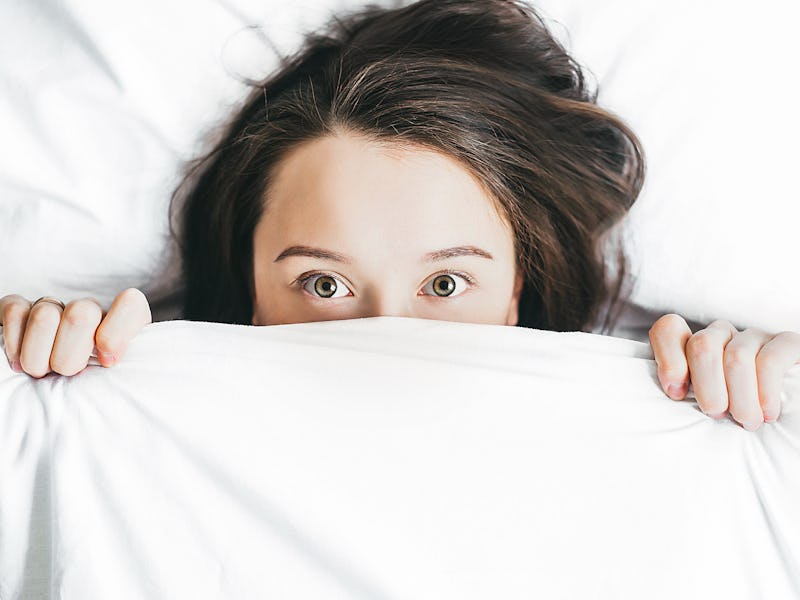A Genetic Mutation Explains Why Some People Only Need 4 to 6 Hours of Sleep
"It's astonishing that we know so little about how sleep is regulated."

Living among snoozers and night owls are people known as “natural short sleepers.” These individuals have a lifelong tendency to sleep only four to six hours a night but still feel rested. Meanwhile, the average adult is typically recommended to sleep for seven hours or more. According to a study released Wednesday in Neuron, these early risers have something that others do not — a mutation in the gene ADRB1.
Back in 2009, Ying-Hui Fu, Ph.D., a neurology professor at UC San Francisco, discovered that a family of natural short sleepers contained a different mutation in DEC2, a gene that typically helps regulate circadian rhythms. She tells Inverse that after that study was published, a large number of natural short sleepers contacted her team. These individuals were recruited to participate in another study, which led to this new discovery.
"…it’s astonishing that we know so little about how sleep is regulated."
The ultimate goal of the research is to understand how sleep is regulated, which would allow scientists to define what it really means to get a good night’s sleep. Fu explains that once that they have that understanding, researchers can then begin to help people get better at sleeping.
“We all spend about one-third of our lives in the state of sleep,” Fu says. “In fact, considering how important sleep is to our well-being, it’s astonishing that we know so little about how sleep is regulated.”
After analyzing the new recruits’ DNA, Fu and her colleagues, including co-senior author Louis Ptáček, M.D., discovered that one family of short sleepers contained mutated ADRB1 genes. When mutations are not involved, normal ADRB1 proteins, which the ADRB1 gene encodes, contain neurons in the small region of the brain called the dorsal pons. These neurons play a role in regulating sleep-wake behavior.
In red the location of the brain's pons.
To examine whether or not this mutation was really behind the family’s diminished need for sleep, they studied the mutated gene’s protein in a test tube and compared it to a non-mutated version. This examination revealed that the mutant version of the protein was much less stable, suggesting that it couldn’t interact normally with neurons.
Knowing this, the team conducted experiments on mice who carried the mutated ADRB1 gene, and while humans and mice differ a bit in the way that they sleep, the mice still slept less — waking up 55 minutes earlier than the group of control mice. When they examined the mice’s brains, they found that the gene was, as suspected, expressed at high levels in the dorsal pons region. What’s more, it was active not only during wakefulness but also during rapid eye movement sleep. Because that part of the brain is associated with wake and REM sleep, it’s suspected that the high-activity level of the neurons linked to the mutated gene contributes to the short-sleep behavior.
The authors note that while this is newly discovered mutated gene contributes to short sleep, it’s probably not the only one. There are likely more unrecognized genes and regions of the brain that tell our bodies when to go to bed and rise in the morning.
“Identifying genes, and mutations, that cause people to sleep less naturally without significant negative impact lays the groundwork for scientists to investigate how our sleep homeostasis and efficiency is regulated at the molecular and neuronal levels,” Fu says.
“This line of studies will help us find ways to not only bring relief to those who suffer from sleep problems but increase sleep efficiency for everyone to ensure healthy aging.”
Abstract:
Sleep is crucial for our survival, and many diseases are linked to long-term poor sleep quality. Before we can use sleep to enhance our health and performance and alleviate diseases associated with poor sleep, a greater understanding of sleep regulation is necessary. We have identified a mutation in the b1-adrenergic receptor gene in humans who require fewer hours of sleep than most. In vitro, this mutation leads to decreased protein stability and dampened signaling in response to agonist treatment. In vivo, the mice carrying the same mutation demonstrated short sleep behavior. We found that this receptor is highly expressed in the dorsal pons and that these ADRB1+ neurons are active during rapid eye movement (REM) sleep and wakefulness. Activating these neurons can lead to wakefulness, and the activity of these neurons is affected by the mutation. These results highlight the important role of b1-adrenergic receptors in sleep/wake regulation.